One of the major festivals that is celebrated by Hindus wor;dwide, apart from Deepavali, is the lesser known Thai Ponggal.
Ponggal is celebrated in the auspicious month of Thai in the Tamil calendar, and it signifies a new beginning.
The festival is largely dedicated to the sun and is traditionally celebrated for four days as a mark of thanksgiving for the year's harvest.
Ponggal, derived from the Tamil ‘Ponggu’ (which means ‘to boil over’), is also a delectable dish of sweet and sticky rice, made with rice, sugar, cow’s milk, ghee, cashew nuts, raisins and a good pinch of cardamom.
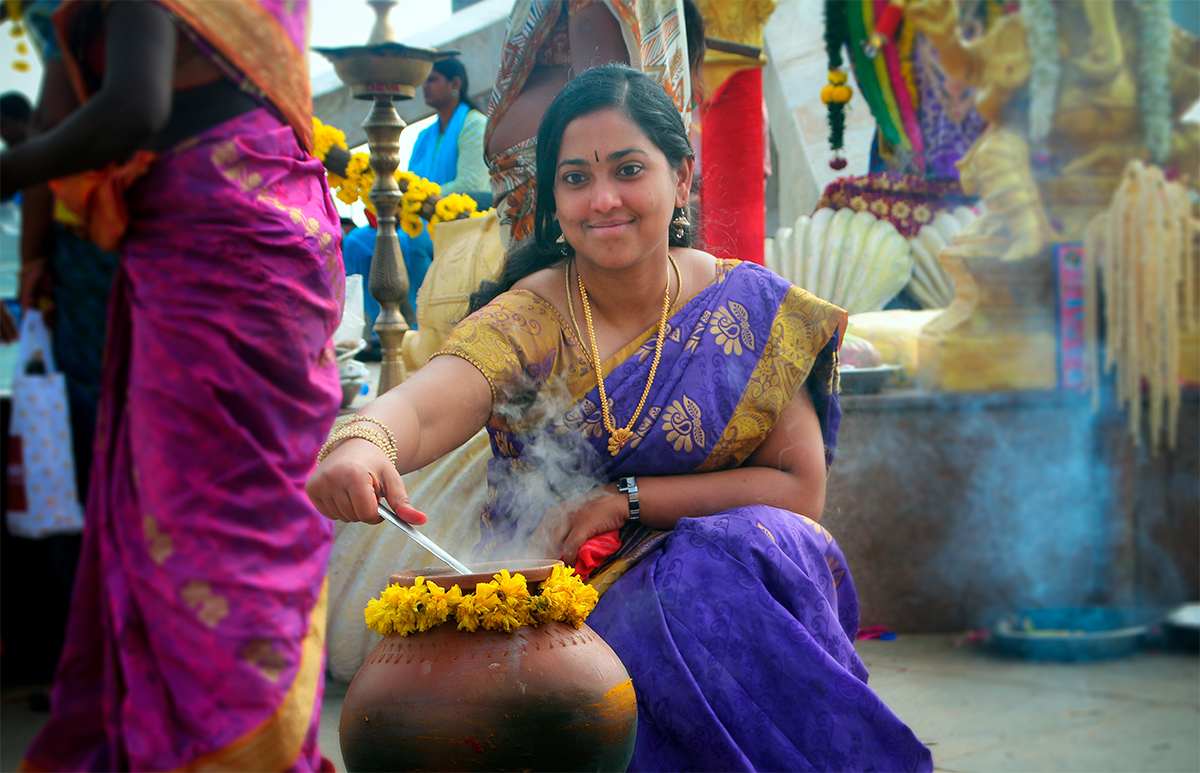
During the celebration of Thai Ponggal, a pot of cow’s milk will be boiled. When the milk spills over, the other ingredients are added into the pot and cooked slowly to develop flavour and a tacky consistency that melts in the mouth. Once cooked through, the dish is first offered to the gods and goddesses before being shared among family members.
As easy as the process of making Ponggal sounds, one of the most important elements that determines the success of the dish is the pot that is used to cook it.
And no, one doesn’t simply use the pots and pans lying around in the house to make Ponggal. As Ponggal signifies a new beginning, the pot must also be brand new.
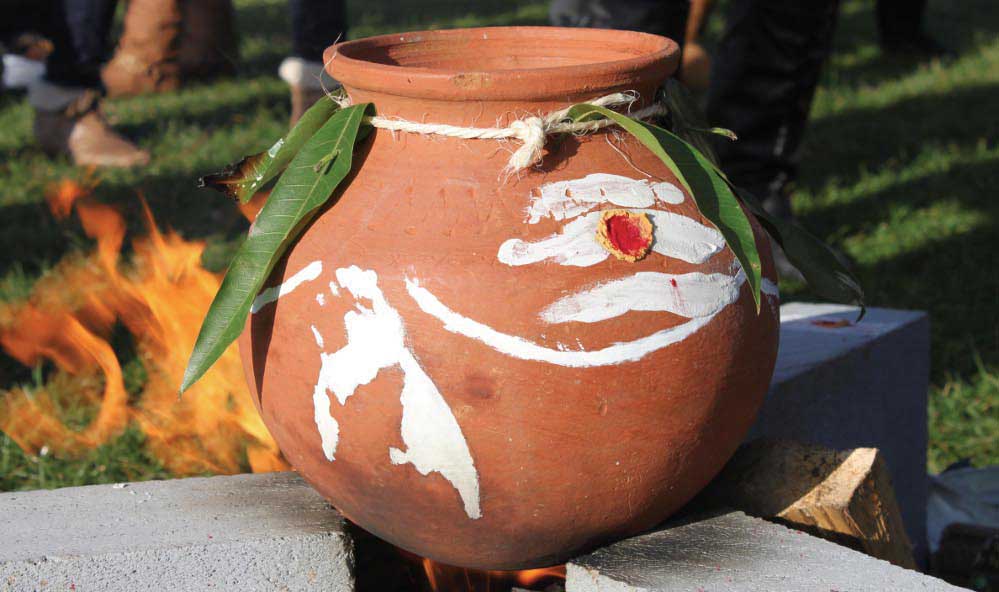
In Malaysian households, brand new clay pots are the preferred traditional tool to cook Ponggal.
As such, clay pots will be in high demand during the month of Thai.
To meet the demand, clay pots are produced in abundance in that particular month, and in Malaysia, only a few families are equipped with the skill and knowledge to produce such pots.
Mahavisnoo Krishnan, who runs Krishnan Pottery in Kuala Selangor, belongs to one such family.
Rojak Daily recently caught up with the busy potter to take a closer look at his pottery business.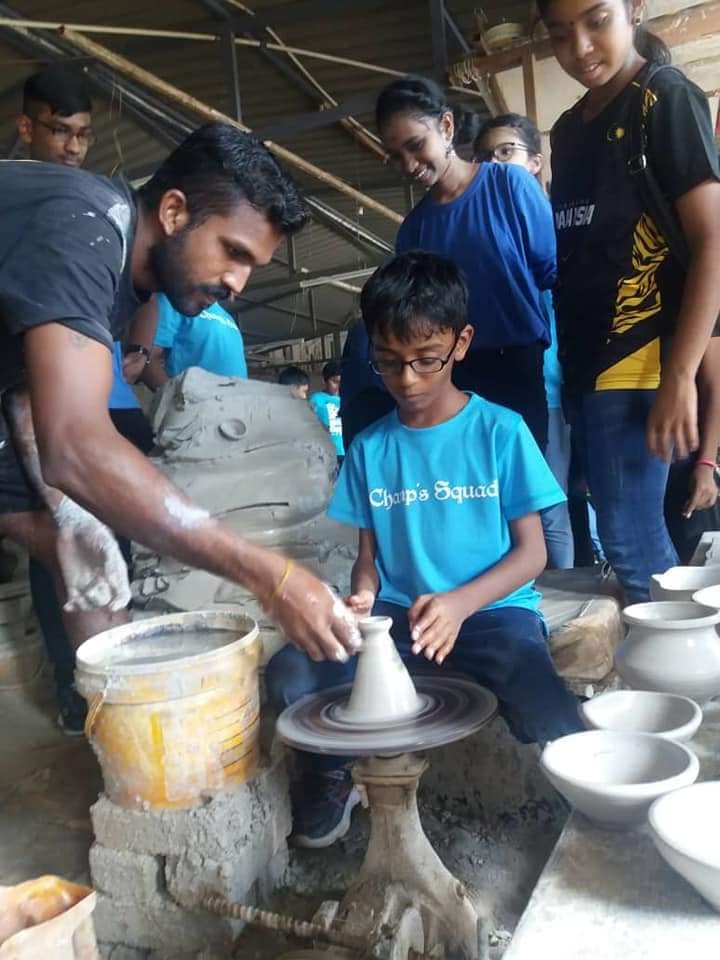
Krishnan Pottery was started by Mahavisnoo’s grandfather, and Mahavisnoo is the third generation to run the family business that has gone through a lot of ups and down.
“My grandfather came to Malaysia from India, bringing with him the knowledge in making clay pots.
“Upon arriving in Malaysia, he decided to venture in the clay pot making business because during those times, the Indians usually use clay pots to cook and store their food or water. The demand was high and he catered to it.
“As time goes on, he taught the skills to my father who ran the business after my grandfather.
“My father in turn taught me the art of making clay pots when I was 15. I am 35 now and I do this for a living, continuing the family business. My father is 70 years old and he supervise, manage and advice the business,” Mahavisnoo told Rojak Daily.
Mahavisnoo shared that as time evolved, more people switched to cooking in aluminum pots and pans. Due to that, the business had to only rely on special occasions like Ponggal to make an income.
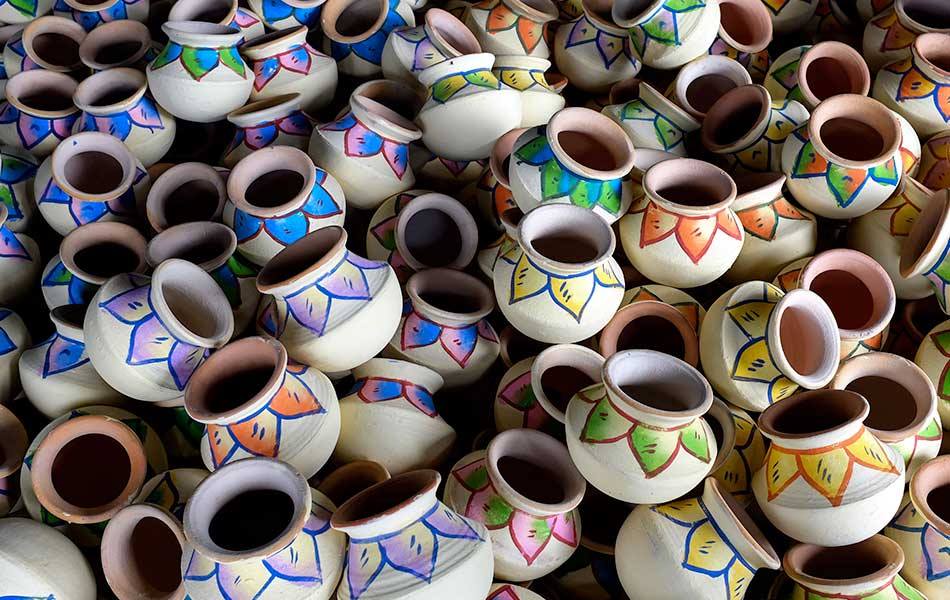
However, he said the good news is, people are slowly going back to the old ways of cooking and storing food in earthenware.
“When the demand for cooking in clay pots dropped, we used to cater to customers who look for clay pots specifically for festivals. For example, during the ‘Kartigai’ festival or festival of lamps, where Hindus light up their houses with clay lamps, we produce a lot of such product. During Ponggal, we produce a lot of clay pots.
“However, the past two years saw an improvement in terms of the increase in customers who are going back to their roots of cooking in clay pots.
“Cooking in clay pots like the olden times is said to be extremely beneficial to our bodies as it adds nutrients such as calcium, phosphorous and iron to food. Foods cooked in clay pots also is said to have lower amounts of fat and calories compared to food prepared in metal utensils.
"So, we're glad people are realising this and business for us has been good,” he laughed.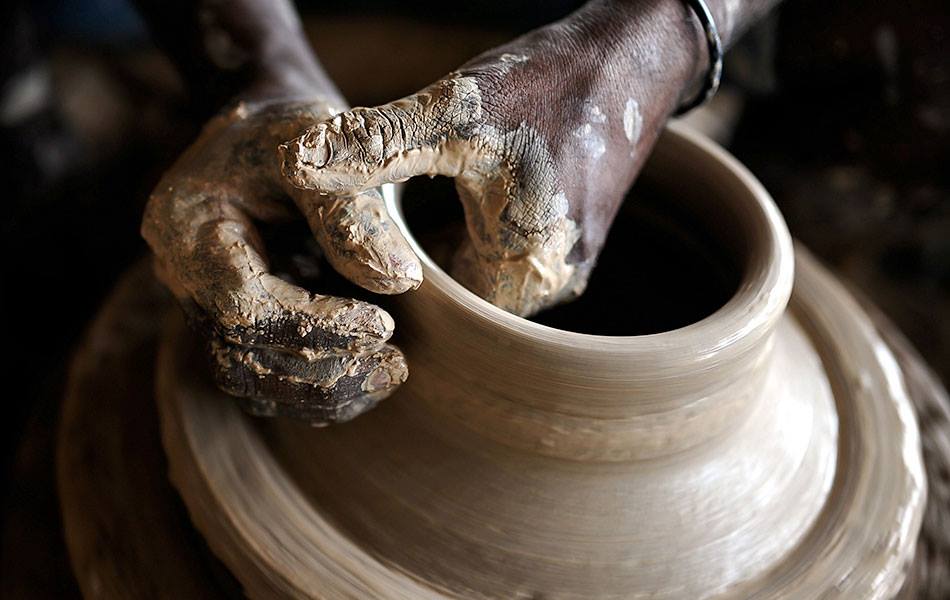
Mahavisnoo admitted that the Ponggal festival is among his business’ busiest times, as thousands of orders for clay pots pour in.
"The demand for clay pots increases tremendously during the Pongal festival every year because 95 per cent of the Indian community in Malaysia use clay pots to cook Ponggal.
“In Krishnan Pottery, we receive at least 30,000 clay pot orders every year during Ponggal and we work night and day to ensure the demand is met,” he explained.
This is why making a clay pot is so hard: Mahavisnoo said a perfect clay pot takes about five to six days to make.
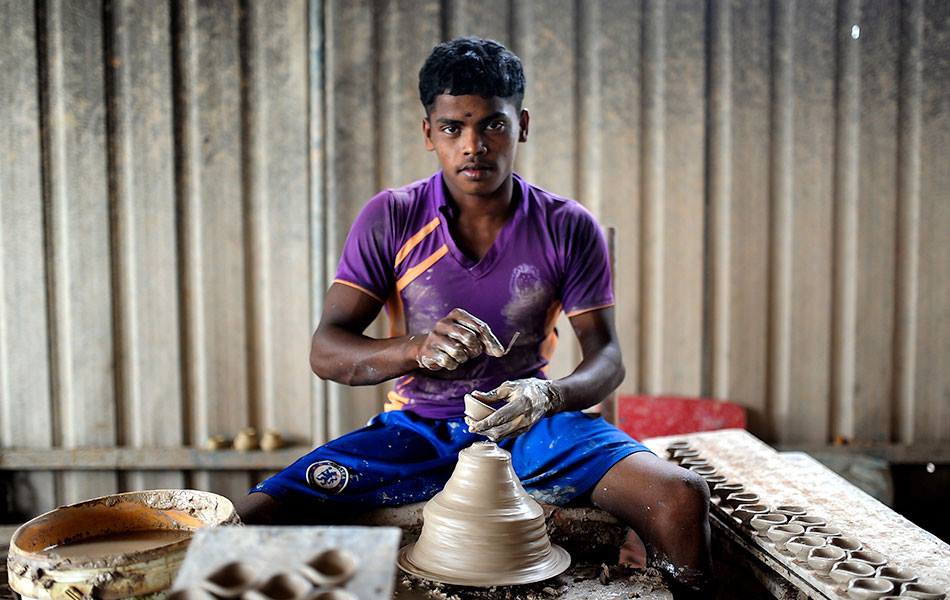
He sources the raw ingredients such as clay and sand from a local supplier in Bestari Jaya, Kuala Selangor, and once he receives the raw ingredients, the work starts.
“I mix the clay and about 20 per cent sand before picking out the impure ingredients such as stones.
“The mixture is then shaped and moulded manually to form clay pots. After that, the pots will be left out in the sun for at least eight hours to dry.
“The clay pots are then fired and baked in a clay boiler for at least 10 hours. If the clay pots are being prepared for Ponggal, then, they will be hand painted with colourful flowers or Rangoli designs, before being sent off in lorries for distribution,” he explained.
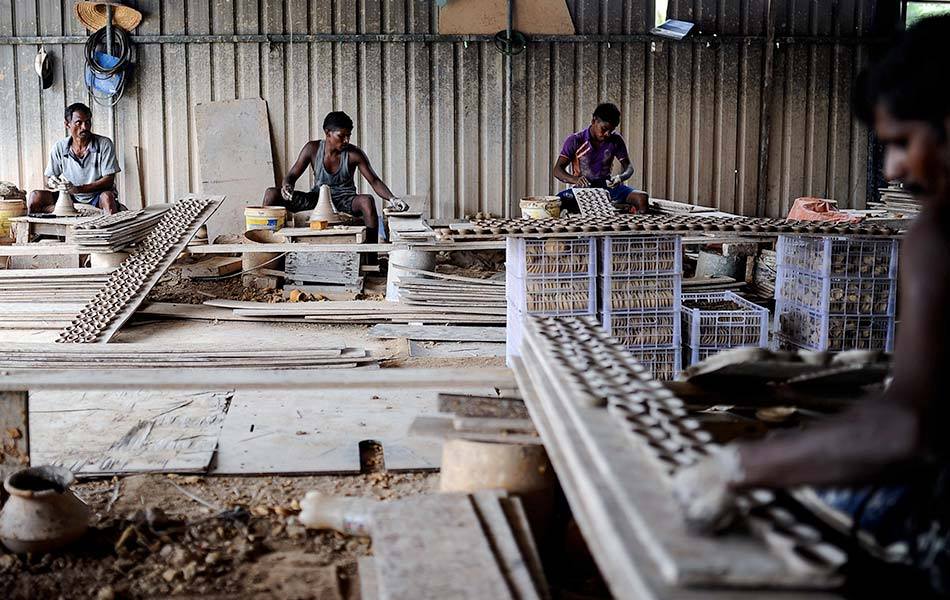
He said because the work load is immense during the Ponggal period, he hires additional staff to help out at his plant.
Mahavisnoo said his customers mostly reside in Klang Valley, but he also has customers as far as Penang and Singapore.
However, he admits that someone has to do it in order to continue the tradition and pass on the skills.
“I have two schooling daughters who already have a keen interest in pottery and have learnt some tricks on making the perfect clay pot.
“That’s how it works. It’s a family business and it gets passed on as time goes by. You cannot expect a person who is completely unfamiliar with the business to take it up or to have as much passion as us. But if you are keen, why not? ” he said.
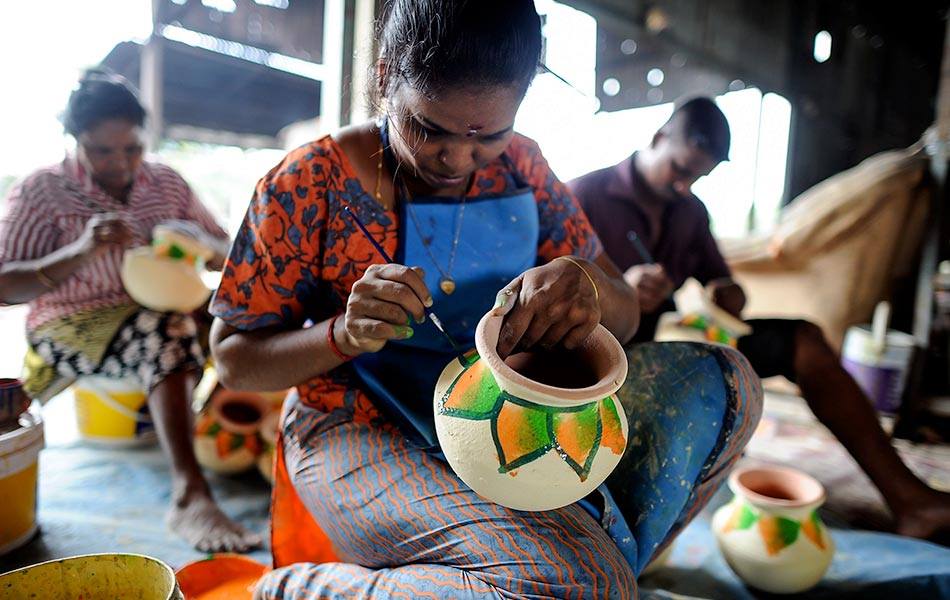
Mahavisnoo shared that in fact, the business does not even have much competition because only six families in the whole of Malaysia takes up pottery and do it full time.
“Every year for Ponggal, about 200,000 people look for new clay pots. My business only caters for 30,000 of them. That’s the maximum number that we can produce.
“The rest of the demand is met by the other five families who runs pottery businesses. There’s no competition here,” he said.
Well, you can say that Ponggal will never be the same if these businesses stop making clay pots.
Ponggal is celebrated in the auspicious month of Thai in the Tamil calendar, and it signifies a new beginning.
The festival is largely dedicated to the sun and is traditionally celebrated for four days as a mark of thanksgiving for the year's harvest.
Ponggal, derived from the Tamil ‘Ponggu’ (which means ‘to boil over’), is also a delectable dish of sweet and sticky rice, made with rice, sugar, cow’s milk, ghee, cashew nuts, raisins and a good pinch of cardamom.

During the celebration of Thai Ponggal, a pot of cow’s milk will be boiled. When the milk spills over, the other ingredients are added into the pot and cooked slowly to develop flavour and a tacky consistency that melts in the mouth. Once cooked through, the dish is first offered to the gods and goddesses before being shared among family members.
As easy as the process of making Ponggal sounds, one of the most important elements that determines the success of the dish is the pot that is used to cook it.
And no, one doesn’t simply use the pots and pans lying around in the house to make Ponggal. As Ponggal signifies a new beginning, the pot must also be brand new.

In Malaysian households, brand new clay pots are the preferred traditional tool to cook Ponggal.
As such, clay pots will be in high demand during the month of Thai.
To meet the demand, clay pots are produced in abundance in that particular month, and in Malaysia, only a few families are equipped with the skill and knowledge to produce such pots.
Mahavisnoo Krishnan, who runs Krishnan Pottery in Kuala Selangor, belongs to one such family.
Rojak Daily recently caught up with the busy potter to take a closer look at his pottery business.
Generations of potters

Krishnan Pottery was started by Mahavisnoo’s grandfather, and Mahavisnoo is the third generation to run the family business that has gone through a lot of ups and down.
“My grandfather came to Malaysia from India, bringing with him the knowledge in making clay pots.
“Upon arriving in Malaysia, he decided to venture in the clay pot making business because during those times, the Indians usually use clay pots to cook and store their food or water. The demand was high and he catered to it.
“As time goes on, he taught the skills to my father who ran the business after my grandfather.
“My father in turn taught me the art of making clay pots when I was 15. I am 35 now and I do this for a living, continuing the family business. My father is 70 years old and he supervise, manage and advice the business,” Mahavisnoo told Rojak Daily.
Mahavisnoo shared that as time evolved, more people switched to cooking in aluminum pots and pans. Due to that, the business had to only rely on special occasions like Ponggal to make an income.

However, he said the good news is, people are slowly going back to the old ways of cooking and storing food in earthenware.
“When the demand for cooking in clay pots dropped, we used to cater to customers who look for clay pots specifically for festivals. For example, during the ‘Kartigai’ festival or festival of lamps, where Hindus light up their houses with clay lamps, we produce a lot of such product. During Ponggal, we produce a lot of clay pots.
“However, the past two years saw an improvement in terms of the increase in customers who are going back to their roots of cooking in clay pots.
“Cooking in clay pots like the olden times is said to be extremely beneficial to our bodies as it adds nutrients such as calcium, phosphorous and iron to food. Foods cooked in clay pots also is said to have lower amounts of fat and calories compared to food prepared in metal utensils.
"So, we're glad people are realising this and business for us has been good,” he laughed.
Ponggal clay pot preparation

Mahavisnoo admitted that the Ponggal festival is among his business’ busiest times, as thousands of orders for clay pots pour in.
"The demand for clay pots increases tremendously during the Pongal festival every year because 95 per cent of the Indian community in Malaysia use clay pots to cook Ponggal.
“In Krishnan Pottery, we receive at least 30,000 clay pot orders every year during Ponggal and we work night and day to ensure the demand is met,” he explained.
This is why making a clay pot is so hard: Mahavisnoo said a perfect clay pot takes about five to six days to make.

He sources the raw ingredients such as clay and sand from a local supplier in Bestari Jaya, Kuala Selangor, and once he receives the raw ingredients, the work starts.
“I mix the clay and about 20 per cent sand before picking out the impure ingredients such as stones.
“The mixture is then shaped and moulded manually to form clay pots. After that, the pots will be left out in the sun for at least eight hours to dry.
“The clay pots are then fired and baked in a clay boiler for at least 10 hours. If the clay pots are being prepared for Ponggal, then, they will be hand painted with colourful flowers or Rangoli designs, before being sent off in lorries for distribution,” he explained.

He said because the work load is immense during the Ponggal period, he hires additional staff to help out at his plant.
Mahavisnoo said his customers mostly reside in Klang Valley, but he also has customers as far as Penang and Singapore.
Family business that will continue
Mahavisnoo said the clay pot business is not an easy one as the preparation work is extremely tedious.However, he admits that someone has to do it in order to continue the tradition and pass on the skills.
“I have two schooling daughters who already have a keen interest in pottery and have learnt some tricks on making the perfect clay pot.
“That’s how it works. It’s a family business and it gets passed on as time goes by. You cannot expect a person who is completely unfamiliar with the business to take it up or to have as much passion as us. But if you are keen, why not? ” he said.

Mahavisnoo shared that in fact, the business does not even have much competition because only six families in the whole of Malaysia takes up pottery and do it full time.
“Every year for Ponggal, about 200,000 people look for new clay pots. My business only caters for 30,000 of them. That’s the maximum number that we can produce.
“The rest of the demand is met by the other five families who runs pottery businesses. There’s no competition here,” he said.
Well, you can say that Ponggal will never be the same if these businesses stop making clay pots.





